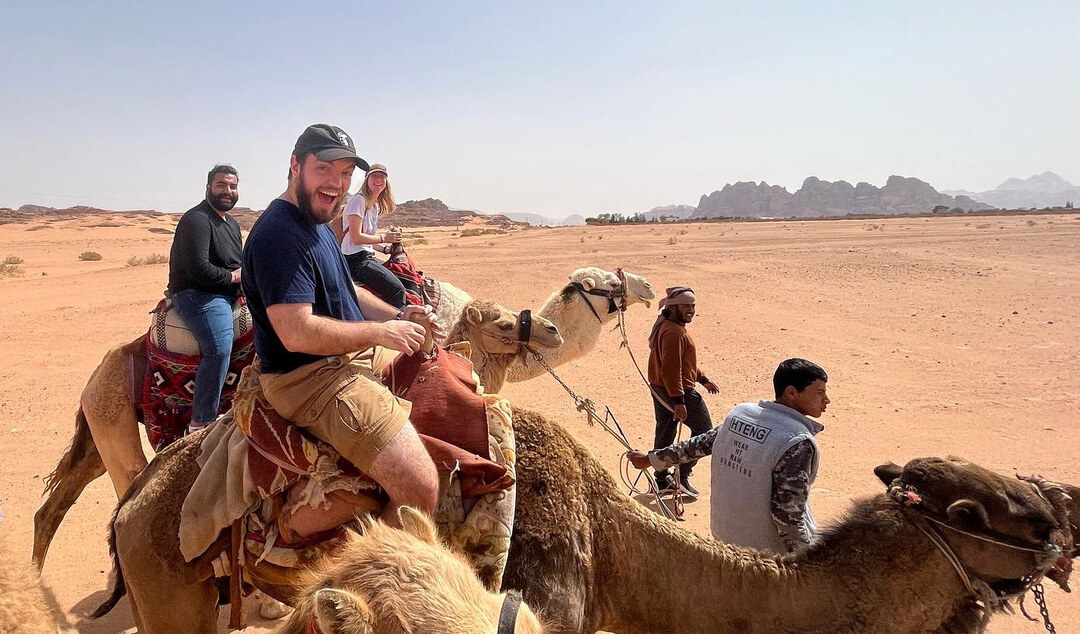Postcard from Abroad: The Ethics of Abroad—Privilege, Poverty & Travel
By Matt Semon, Contributing Writer
When I heard from others about their experiences studying abroad, I often hear about pub crawls in London or rushing to catch a train a few drinks in to avoid being stuck in France for the night. And I don’t mean to devalue these experiences; I have had similar moments getting lost on the Trams in Istanbul or accidentally going to a belly-dancing performance. But something that I have never heard in these stories is balancing extremely positive experiences with the stark reality of privilege.
My program is titled “Refugees, Health, and Humanitarian Action” and is based in Amman, Jordan. We study forced displacement with a focus on humanitarian aid.
Because of the topic matter and the economic downturn in Jordan in recent years, we have often experienced having a great night out and then having homeless people beg for our spare change while we wait for an Uber. At other times, we have visited Syrian refugees, hearing about their personal experience of the devastation of their lives and their poverty in Jordan, and then were invited to the house of the head of an NGO to eat like royalty. On a different day, we toured a refugee camp like a national delegation and realized the horrible, poverty-porn lens that these officials are shown human suffering as a public relations investment opportunity.
I am extremely grateful for my experiences here, both fun nights and visits to historical sights as well as dour lectures and intense experience-sharing. However, this is something that I don’t think is discussed enough, especially prior to choosing a study abroad program. I know that the intensity of my particular example probably doesn’t match everyone’s experiences, but those of us who have studied abroad must have had similar moments: stark presentations of privilege that make you question if this is the most appropriate use of wealth.
Thinking of why you’re going where you’re going, what you’ll be studying and why that specific combination or the language you’re learning will be beneficial is essential to fully understanding the dynamics of the situation and thinking critically about the experience you will have. In situations like mine, maybe consider if having experiences that are possibly intrusive or tough for others truly are essential, and if the program’s benefit for your career will warrant those intrusions.
If possible, give back in some way to the community that’s hosting you. A lot of us on my program are doing internships, and while we’re still gaining more than we’re giving, we’re at least giving something. One friend of mine, in the spirit of Ramadan, joined her host mom in volunteering at a local kitchen that cooks for underprivileged families.
I’m not condemning study abroad experiences; I think they’re important, valuable and wonderful chances for growth—and wanting to see the world is natural. But I think in leaving out these common experiences, we glorify it without considering its issues. We truly become the obnoxious Americans. We become the people who go to Jordan during Ramadan and are frustrated that they can’t find a place to eat during the day. We interact with the place and history, but not the people.
If given the choice again, I’d still do this program. Heck, I’m considering applying for a research opportunity to return to Amman, Jordan. I just wanted to share my experience with the other side of study abroad, and I hope it becomes more widely discussed before, during and after the abroad experience.
This article originally appeared on page 21 of the April 25, 2022 edition of The Gettysburgian’s magazine.

